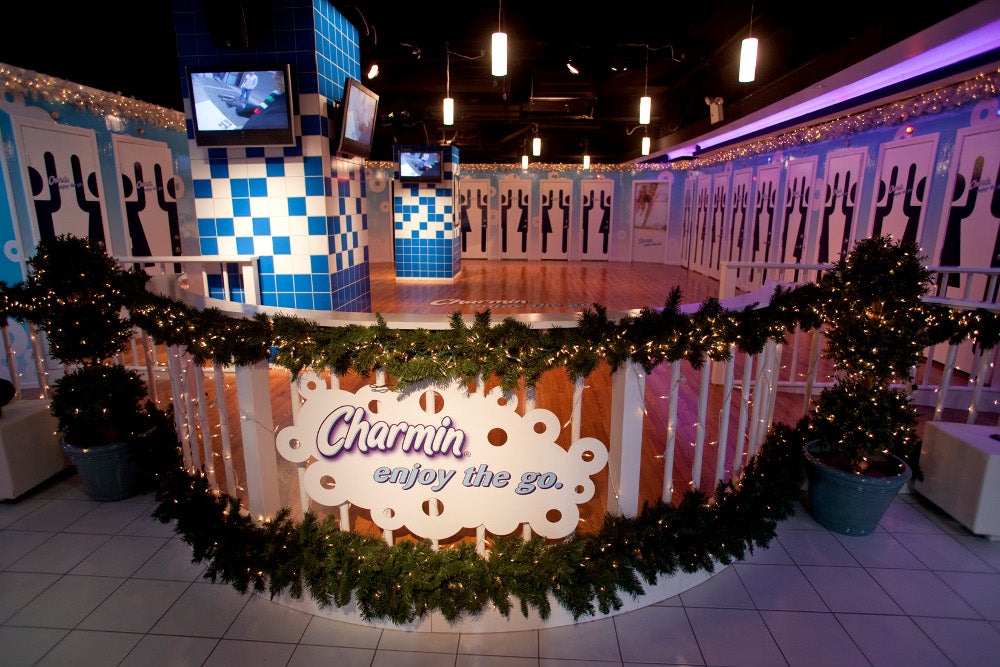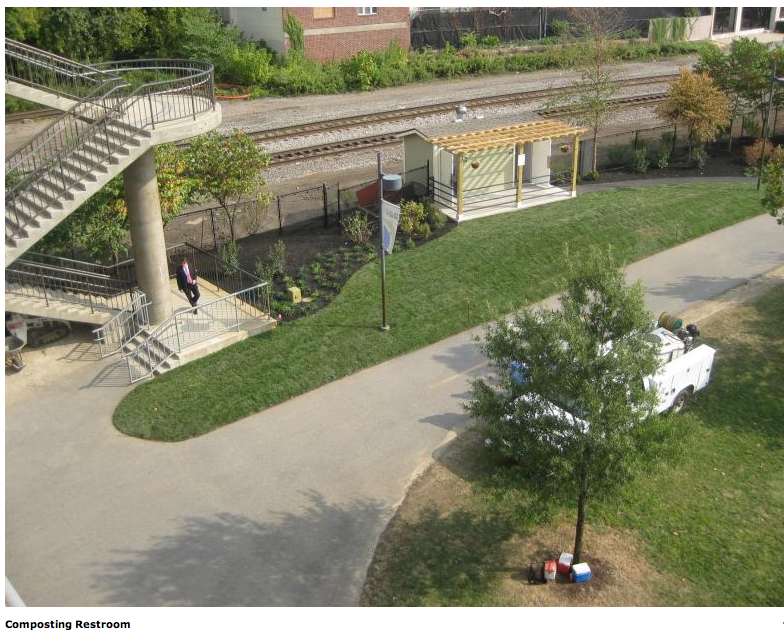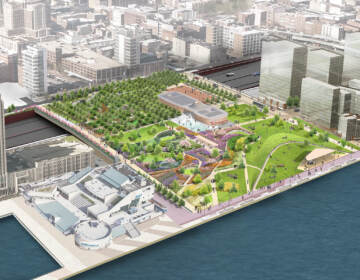UPDATED: DRWC says a very basic amenity would help bring more people to the waterfront
The Central Delaware’s new and improved parks and events have proven popular, but to bring more people to the river, say DRWC board members, a more basic amenity is also necessary:
Increase the number of public bathrooms.
Delaware River Waterfront Corporation Board Member and Deputy Mayor for Economic Development and Planning Alan Greenberger said it is time for the board to look for ways to bring some sort of clean, safe and portable restroom to key areas along the waterfront. One way that cannot be overlooked, he said, is to form a partnership with a company that will provide the restrooms and maintain them in exchange for some sort of advertising on the structures.
“I think this is going to come up, up and down the river,” Greenberger said. “We are not able to have architecturally permanent restrooms everywhere. It’s going to be tough. But we’re going to have to get serious about addressing this problem.”
Greenberger said he saw an article in which a major toilet paper manufacturer was willing to sponsor public restrooms and pay for their upkeep. But he warned the board that when Philadelphia tried to bring in JC Decaux, a company that has placed pay-toilets with advertising all over Europe, to provide public restrooms in Center City, there was a backlash against toilets subsidized with advertising.
“It was hugely controversial,” he said.
After the meeting, DRWC President Tom Corcoran said, “If we could get the service provided in exchange for advertising that is well-done and tasteful, we should look at that.” The alternative, he said, was for DRWC to pay for the toilets, and they are not cheap.
A set of very fancy portable restrooms was placed on the Delaware Avenue sidewalk for the recent opening of Race Street Pier. The cost was covered by a donation, said DRWC Vice President for Marketing, Programming and Corporate Partnerships Jodi Milkman. It was about $2,500 just for that event, she said.
Even a basic portable potty costs about $100 per day to rent, and that does not include cleaning costs, she said.
There are already public restrooms at the marina at Penn’s Landing’s Great Plaza, and eventually, some will likely be added to Pier 9.
But there is a need for more public restrooms now, Corcoran said.
Greenberger brought up the toilet paper company as an example of a potential way to fund public restrooms. He mentioned Scott Tissue. Scott doesn’t have such a program, a spokesman said. But Charmin does. Greenberger said later that he might have remembered the wrong company.
“Since 2006, Charmin has celebrated the holiday season by giving tourists and local New Yorkers a free, clean and family-friendly place to ‘Enjoy the Go,'” said spokeswoman Laura Lewis in an email. Lewis could not answer PlanPhilly questions in time for this article’s original deadline, but later said, also via email, that the Charmin toilets “are fully functioning restrooms that do need to be connected to water.” This past holiday season “the Charmin Restrooms were located near Times Square at 142 West 42nd Street, between Broadway and 6th Avenue,” she said.
That would make using such toilets along the waterfront more challenging than placing portable toilets.
The Charmin restrooms, which have popped up in New York for each of the past five holiday seasons, are both free of charge to patrons and provided at no-cost to New York City, Lewis said. Charmin provides cleaning and maintenance as well. When asked if Charmin might consider talking to a quasi-city agency in Philadelphia about providing pop-up restrooms here, Lewis said, “We cannot discuss future planning at this time.”
Greenberger and DRWC board Chairman Donn Scott and Vice Chairman Jay Goldstein said that there may be other ways to bring bathrooms to the waterfront – with or without some sort of corporate sponsorship or public advertising – and DRWC would be considering different options.
Greenberger said they need to find out what other U.S. cities provide in sections where there aren’t fast-food restaurants or other places where a person can pop in to use the bathroom. In Europe, pay toilets paid for with advertising are very common, he said.
The need for portable public toilets will diminish as the Central Delaware continues to develop and private establishments provide restrooms, Greenberger noted.
A public restroom facility with waterless, composting toilets was installed last fall on the city’s other river, at Schuylkill Banks near Walnut Street. The $150,000 project was a joint effort between the Schuylkill River Development Corporation and city parks and rec. It was funded with grants and city money, and much of the work was donated. Toilet paper, hand sanitizer and related fixtures were donated by a local company, SCA Americas.
Schuylkill River Development Corporation Operations Manager Joshua Nims said in an email that Schuylkill Banks has used portable toliets in the past. Daily rates are expensive because of drop-off and pick-up costs, he said, but longer term rentals are more affordable. “We used a traditional portable facility at the Banks for two years (seasonally at about $600 per seven month season) before the composting toilets were completed,” he said.
Corcoran said it’s not just restrooms that would bring more people to the waterfront, but the ability to take care of another basic human need: Food.
Everyone agreed that this problem could be more easily solved, however. Corcoran said after the meeting that DRWC already contracts with vendors to provide food at Penns Landing, and the contracts could be reworked so that they also sell food at Race Street Pier or other areas.
Corcoran said it is a “chicken and egg” situation, because vendors are going to want the guarantee of a certain amount of potential customers, but more people would come by if there were more food options. He said something could be worked out, though.
More restaurant options are expected to open along Delaware Avenue as the redevelopment continues. And Greenberger said that people can always bring food to a park. “I’ve seen people at Race Street Pier with a box of pizza,” he said.
Reach the reporter at kgates@planphilly.com.
WHYY is your source for fact-based, in-depth journalism and information. As a nonprofit organization, we rely on financial support from readers like you. Please give today.







